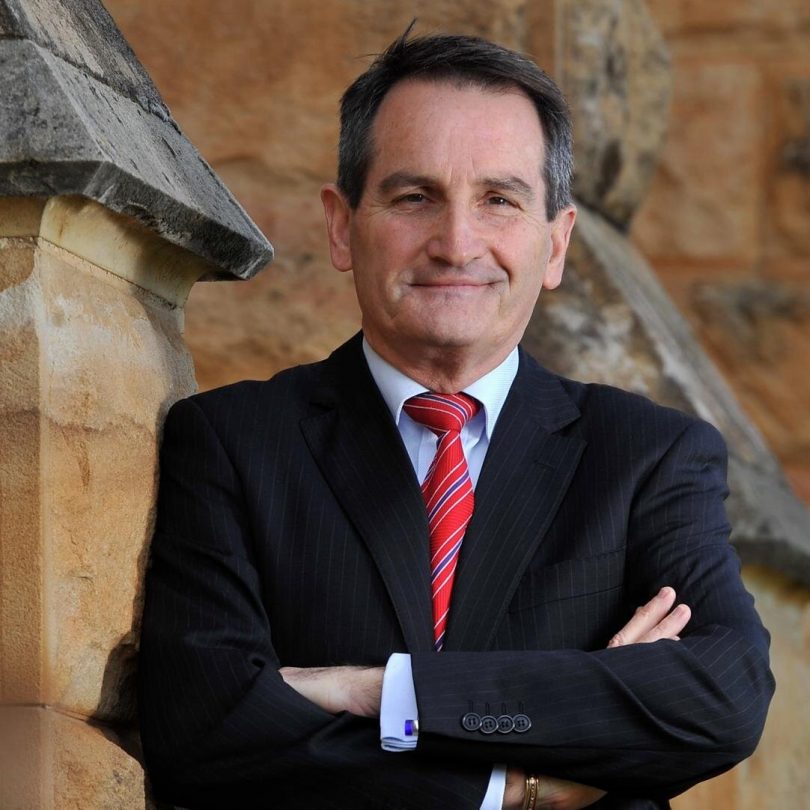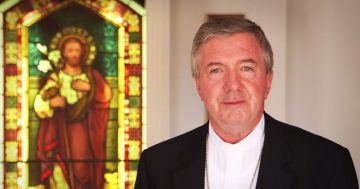
Francis Sullivan headed the Catholic Church’s Truth, Justice and Healing Commission. File photo.
A senior church official and prominent Canberra Catholic says that Cardinal George Pell’s conviction for sexual abuse may be “the last straw” for many church members and that the ACT government is on the right track with new legislation making it mandatory to report information concerning sexual abuse disclosed in a religious confession.
Francis Sullivan was chief executive of the Australian church’s Truth, Justice and Healing Commission in response to the sexual abuse crisis. He believes Cardinal Pell’s conviction on sex abuse charges may be a final tipping point for many Catholics, adding, “I don’t know how much people can bear. My feeling is that a lot of ordinary people are really going to find something like this the last straw.
“Regardless of his personality, Cardinal Pell was the Catholic church at an institutional level. To have a conviction literally beggars belief, as does the fact that people like George Pell have very prominently said since 1996 that they are part of the solution, not the problem.
“Church officials have expended enormous energy in trying to justify why the church didn’t have to be dragged into the public realm. They fought tooth and nail every time a public enquiry was suggested into their processes and they are still holding out on the seal of confession, trying to maintain – weakly, very weakly in my opinion – that the seal has nothing to do with the welfare of a child. That just beggars belief.
Mr Sullivan, who led the Church’s response to the Royal Commission and sat through all the Commission’s Canberra hearings, says the church has attempted to divide the Australian sexual abuse history into distinct halves: matters that occurred before the time of the current hierarchy, then their role as architects of the way forward after those events.
“That’s been the narrative exhaustively promulgated from day one of the Royal Commission, that this was a historical problem only, that the perpetrators were dead or had come to justice. The fact that a cardinal has been convicted of the abuse means that many people will now feel that if possible, this is even worse than we thought.”
Mr Sullivan says that the church’s governance arrangements are also a fundamental problem reflecting a culture of secrecy and cover-up by those in power. But he says beyond the abuse itself, one of the church’s biggest failures has been the lack of ordinary morality among senior officials.
“Where is the basic moral sense, the moral knowing that we all carry with us, the sense of right and wrong?”, he asks, arguing that goes to the need for a profound re-examination of the church’s culture, its hierarchy and the role of lay people.
Mr Sullivan says there will be those who resist that analysis. “Even today you’ll hear people arguing that this is the inevitable outcome of secular evil forces trying to undermine the value, influence and credibility of religion and using any opportunity to weaken the church.”
Given that Cardinal Pell has indicated his intention to appeal his conviction, Mr Sullivan says it’s important to respect the process of the law. “The bigger thing is for Catholics to realise that we are confronting something about ourselves as a culture in the church. We have to be more adult in our participation in the church, mutual participants and not subjects.”
Can the Catholic Church in Australia recover from Cardinal Pell’s conviction?














